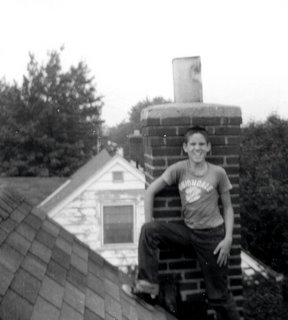 My mom and my husband Andy, 2002. The Swedish rollator kept her out of a wheelchair
My mom and my husband Andy, 2002. The Swedish rollator kept her out of a wheelchair
Baby boomers often seem to believe that if they eat right, exercise daily, keep intellectually active, retire at 75, volunteer daily, they will never be frail old people, dependent on others. Until four years before she died in 2004, my mom was extremely independent. She lived alone, she drove, she traveled all over the world, she walked, she did yoga, she lobbied in DC and Albany for Alzheimer's Disease and long-term health care, she helped care for her 15 grandchildren, she virtually ran her local Catholic parish.
She was the helper, never the helped. Asking for or accepting help was almost impossible for her. She was the model of successful aging. My oldest daughter once marveled, "I can even accept that you and dad might die. But Grandma is immortal." In an eloquent tribute to my mom, my daughter Rose points out she was always moving. My mom never seemed anxious or depressed; she coped with negative feelings by activity. As her health and life fell apart very quickly, she wasn't comfortable expressing her fears or grief. I often wondered if she had adequately mourned her little sister who died when she was 5, her father who died when she was 17, her husband who died of Alzheimer's Disease when she ws 65.
Everyone admired and reinforced her independence; ironically it made her aging more difficult for everyone concerned. My mom developed Progressive Supranuclear Palsy, a Parkinson-plus neurological disorder; it destroyed her balance and she started to fall. She refused to make accommodations to her growing disability.
In January 2000, she fractured her pelvis on a trip to Israel. She was walking up a slippery cobblestone hill in the rain. She walked around Israel for a week with a fractured pelvis. I only knew what had happened after a friend drove her home from the airport.
For about two years, I had been trying to convince her and my brothers that her driving ability was serious compromised. In April 2000 she totaled the car and broke her sternum. She lost control of the car after colliding with a lawn service truck. Fortunately no schoolchildren were walking on the sidwalk when her car jumped the curb and crashed into a hedge.
Werenovated my house so she could move in with me. A in-house garage was converted into a first-floor bedroom, so she never had to climb stairs. We added a ramp to the front door. Then she broke her arm in physical therapy; bored with the exercise bike, she decided to try the trampoline, balanced on one foot, and didn't hold on. Two months later she fractured her ribs trying to move a television set.
In 2001, visiting my brother, she fell from the top of his stairs and suffered serious brain damage. She was never herself again. For the last three years of her life, she was totally dependent on her family and home health aides for all activities of daily living; she could never be left alone. If alone, she would inevitably do something that made her fall. At night we used both a baby monitor and a motion detector. If she had been able to accept her need for help, she might have avoided the falls and head injuries that so compromised her quality of life.
My parents took care of my grandmother the last 5 years of her life. Mom thought that her mom had taken a defeatist attitude toward her arthritis, taken to her chair, and given up her formerly active life. She told me she struggled to remember "what a great woman mom had been." My mother was never going to be like her mom; exercise, yoga, great diet would all prevent that. But my grandmother lived four years longer than my mother did, and taking care of her was relatively easy. She remained the loving, wise grandmother who was a great listener; she lived to know 23 great grandchildren. She was always extremely careful and never fell.
If my mom had been more cautious, she might shave lived to see six grandchildren married and meet three great-grandchildren. Anne, my oldest daughter, has told me countless times in the 20 months of her son's life how much she misses Grandma. I used to tell my mom, "Mom, so many of your grandkids are just on the cusp of marriage and parenthood. Isn't seeing Mommy Anne worth letting us take care of you?"
Our generation is being encouraged to think we can defeat aging. The US can't cope with dependency at the beginning or end of life. Graciously letting people take care of you can be the most loving gift you can give them. All of us constantly struggle with being able to ask for and accept help. When I recently injured my knee, I hated to ask my husband for the help he is happy to give.
Even though it was challenging, I have always been glad I was able to welcome my mom into my home and give back a small part of what she had given to her family, her friends, the world. My then new husband Andywas wonderful with her. Since he hadn't known the super Mary, he could love the reduced Mary without mourning what was no longer there. People used to assume he was mom's son; mom get confused explaining she wasn't English.
So many parents of my friends and so many of my aunts and uncles begin to need significant help as they near 80. Independence is a desirable goal of human development, but most of us have long periods of dependency at the beginning and end of life. Realistically accepting and planning for the probable dependence of aging may be one of the baby boomers' hardest challenges.

